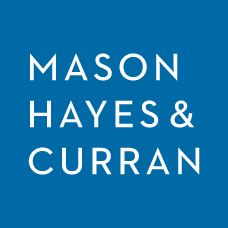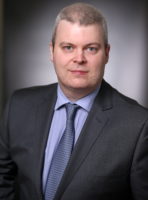Patents & Trademarks
Mason Hayes & Curran / Ireland
Want to know more about patents & trademarks in Ireland? Read on! Prepared in association with Mason Hayes & Curran, a leading law firm in Ireland, this is an extract from The Pharma Legal Handbook: Ireland, available to purchase here for USD 99.
1. What are the basic requirements to obtain patent and trademark protection?
Patents
The requirements to obtain patent protection are outlined on the website of the Intellectual Property Office of Ireland (IPOI). Any person can make an application for a patent, and the right to the patent belongs to the inventor or their successor in title. Applications can be filed jointly and by a patent agent on behalf of an applicant. The basic application requirements consist of the following:
- A request for the grant of a patent. (Completing the application Form No.1, which is an online form)
- A specification containing a description of the invention, one or more claims defining the matter for which protection is sought and any drawings needed for the disclosure.
- An abstract containing a summary of the matter contained in the specification.
- The prescribed filing fee
Trademarks
The IPOI also deals with trademark protection and in order to obtain such protection, an applicant completes the requisite form and will ordinarily wait at least three months before registering their trademark. The three month period allows for any potential oppositions to the application to be filed. At the end of this three month period, if there is no opposition filed, the application will proceed to registration. When a trademark is registered, a registration certificate will issue to the proprietor and the registration will last for 10 years, at which point it can be renewed for a further 10 year period.
2. What agencies or bodies regulate patents and trademarks?
The IPOI is the official government body responsible for intellectual property rights including patents and trademarks.
3. What products, substances, and processes can be protected by patents or trademarks and what types cannot be protected?
Patents
Section 9(1) of the Patents Act 1992 states that, an invention in all fields of technology shall be patentable if it is susceptible of industrial application, is new and involves an inventive step.
The 1992 Act explicitly states that the following are not patentable;
- An aesthetic creation
- A discovery, scientific theory or a mathematical method
- A scheme, rule or method of performing a mental act, playing a game or doing business, or a program for a computer
- The presentation of information
- A method for treatment of the human or animal body (this exclusion does not apply to a product for use in any such method)
- A plant or animal variety or an essentially biological process for the production of plants or animals other than a microbiological process for the products thereof
- An invention whose commercial exploitation would be contrary to public order or morality
Trademarks
Under Irish law, a trademark is any sign which is capable of distinguishing goods or services of one undertaking from those of other undertakings. The legislation provides a non-exhaustive list of examples such as words, designs, letters, numerals, colours, or the shape of goods or their packaging, or sounds.
Therefore, in order to be eligible for registration, the trademark must be a sign, must be capable of being represented on the register in a manner which enables the competent authorities and the public to determine the clear and precise subject matter of the protection afforded to its proprietor and it must be capable of distinguishing goods or services of one undertaking from those of other undertakings.
Furthermore, section 8 of the Trade Marks Act 1996 (as amended) provides certain additional absolute grounds for refusal of a trade mark application. For example, trade marks which are devoid of distinctive character, trade marks which are descriptive, those which are contrary to public policy or accepted principles of morality, and those applied for in bad faith will not proceed to registration.
4. How can patents and trademarks be revoked?
Patents
Section 58 of the Patents Act 1992 outlines the grounds for seeking revocation of a patent. A revocation application can be brought either before the High Court or the Controller and, generally, there is no requirement that the party seeking revocation be an interested party.
The grounds for revocation of a patent under the 1992 Act are:
- The subject matter of the patent is not patentable under the 1992 Act
- The specification of the patent does not disclose the invention in a manner sufficiently clear and complete for it to be carried out by a person skilled in the art
- An amendment to a specification added new matter
- An amendment extends the protection conferred by the patent, which in effect broadens the scope of the claims of the granted patent which should not have been allowed
- The proprietor of the patent is not entitled
Trademarks
An application for revocation of a trademark can be brought before the High Court or the Controller and by any person.
Non-use of a trademark can lead to the revocation of that trademark but, contrary to some other jurisdictions wherein the proprietor must demonstrate use upon renewal, in Ireland non-use can only lead to revocation where an action is brought by a third party. Section 51(1) of the Trade Marks Act 1996 outlines that a trademark can be revoked for non-use where;
- The mark has not been put to genuine use in the State in relation to the goods/services specified in the registration within five years from when the trademark was registered
- Where after registration, genuine use in relation to the goods/services is suspended for an uninterrupted period of five years
An exception exists in both instances where there are proper reasons for non-use. Proper reasons refer to circumstances unconnected to the trade mark proprietor. For example, a proper reason would be the requirement to seek regulatory approval before placing a medical device or pharmaceutical product on the market.
The Trade Marks Act 1996 shifted the burden of establishing use on to the trademark proprietor. Section 51(1)(c) of the 1996 Act further provides that a trademark can be revoked where a trademark has become the common name in the trade for a product or service as a consequence of the acts or inactivity of the proprietor. It is therefore important for a proprietor to police its trademark.
Section 51(1)(d) of the 1996 Act outlines that revocation can also occur due to use which is liable to mislead the public, for example, in a manner which is misleading as to the nature, quality, or geographical origin of the goods or services.
Moreover, if you are of the opinion that a trade mark should not have been registered, and if you have missed the opportunity to oppose it, it is possible to seek to invalidate the registration pursuant to Section 52 of the 1996 Act. The onus in establishing invalidity rests on the person seeking such declaration of invalidity. An invalidity action can only be taken against a trade mark registration and it is therefore not relevant to a trade mark at the application stage.
5. Are foreign patents and trademarks recognized and, if so, under what circumstances?
Patents
The Patent Co-operation Treaty (PCT) established in 1970 and administered by the World Intellectual Property Organisation (WIPO) allows applicants to obtain patent protection in a large number of countries around the world. Under this Treaty, foreign patents will be recognised in Ireland. A PCT application requesting patent protection in Ireland is categorised as an application for a European patent for Ireland and will be processed by the European Patents Office in accordance with the European Patent Convention (EPC).
Trademarks
The European Union Intellectual Property Office (EUIPO) has an online fast track system allowing a single application to be made (at a cost of €850) to provide trademark protection throughout the EU. This registration is valid in all EU Member States for a period of 10 years, and can be renewed indefinitely every 10 years. Through this mechanism, EU trademarks can be recognised in Ireland.
Furthermore, Ireland is a signatory to the Madrid Protocol, under which, an application can be submitted to the WIPO. This international system of registration gives a trademark owner the option to apply to protect their trademark in several countries worldwide by filing one application, in one language, with one set of fees in one currency (Swiss francs). The Madrid Protocol requires that an international application must be based on a national trademark application, for example, one which has been filed in the IPOI, which is then known as the ‘Office of Origin’. International applications will only be accepted at the IPOI where Ireland is the Country of Origin. The crucial point under this system of recognition of foreign trademarks is that, applications received where Ireland is not the correct Country of Origin will not be accepted.
6. Are there any non-patent/trademark barriers to competition to protect medicines or devices?
Applicants are not required to provide the results of pre-clinical and clinical trials if they can show the product is a generic medicinal product, or a similar biological product to a product authorised in another EU Member State or the EU for at least eight years (or six years, if the application for the reference product was submitted prior to 30 October 2005). However, the transitional data protection principles require that the generic or similar biological product, once authorised, cannot be placed on the market for 10 or 11 years (depending on the exclusivity period) following authorisation of the reference product.
Under the 2007 Medicinal Products (Control of Placing on the Market) Regulations, if the application for the reference product was made before 30 October 2005, the period is reduced to six years. Under the EU Regulations on Orphan Medicinal Products, the owner of an orphan product is entitled to ten years’ market exclusivity if certain conditions are met.
7. Are there restrictions on the types of medicines or devices that can be granted patent and trademark protection?
No. The Patents Act 1992 does not include a special provision in respect of patents relating to food, medicine or to medical, surgical or other remedial devices. Moreover, second medical uses of known medicaments are now patentable under section 11(4) of the 1992 Act (as amended).
In relation to trade marks, so long as the mark in question is a sign which is capable of distinguishing goods or services of one undertaking from those of other undertakings it will be capable of trademark protection. Similarly, the absolute and relative grounds for refusal as set out in sections 8 and 10 of the Trade Marks Act 1996 must be overcome. The absolute grounds for refusal include the following:
- Signs which do not fall within the definition of a trade mark
- Trade Marks which are devoid of distinctive character
- Descriptive trade marks
- Trade Marks which consist exclusively of signs or indications which have become customary in the current language or in the bona fide and established practices of the trade
- Signs which consist exclusively of the shape of; the shape or another characteristic which results from the nature of the goods themselves, the shape or another characteristic of goods which is necessary to obtain a technical result, or the shape or another characteristic which gives substantial value to the goods
- Trade marks contrary to public policy or to accepted principles of morality
- Deceptive trade marks
- Trade marks, the use of which is prohibited by law including EU legislation for the protection of designations of origin, traditional terms for wine, traditional specialties guaranteed or plant variety rights
- Trade marks applied for in bad faith
8. Must a patent or trademark license agreement with a foreign licensor be approved or accepted by any government or regulatory body?
Whilst the license agreement does not have to be approved or accepted by a government or regulatory body it should generally be registered with the office which the trade mark or patent is registered with (for example, the IPOI, the EUIPO etc). Registration is compulsory in some jurisdictions and not in others. In Ireland registration is not compulsory but not having a license agreement registered may restrict what a licensor can do or be entitled to do. Registration requirements do not vary in circumstances where a licensor is foreign. One possible exception would arise where there are competition law reasons why a licence should not take place. In those circumstances, the CCPC may investigate the circumstances surrounding the licence and the impact on the relevant market for anti-competitive behaviour.























































